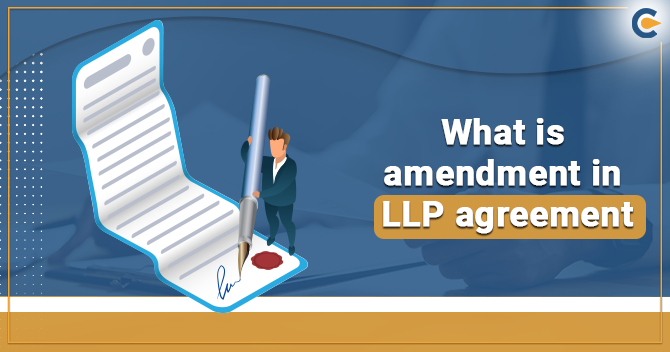Every form of business structure registered in India, limited liability partnerships, etc., is required to submit certain documentation to the registrar of companies on a yearly basis. In line with the 2008 Limited Liability Partnership Act and the 2013 Companies Act, all Indian businesses and LLPs are required to submit ROC annual filings. Both the annual ROC file and its submission at specific times are necessary.
A Limited Liability Partnership (LLP) is a form such as one-person businesses, public limited companies, and private limited firms, a partnership and a corporation. The Registrar of Companies (ROCs), Ministry of Corporate Affairs, regulates LLPs. A particular kind of corporation is a limited liability partnership that can have as many members as it likes, with no maximum. Although the compliance requirements for an LLP are less stringent than those for a private limited company, it is nevertheless critical to keep track of all the major statutory due dates for the LLP’s annual filing. These include ROC submission, income tax submission, and GST submission. An LLP must be well prepared and keep track of significant dates to ensure that all relevant compliances are satisfied in a particular financial year.
Where is LLP defined?
Indian Partnership Act of 1932[1], Section 4 states that a firm is one in which “people who have formed a partnership with one another are referred to as “Partners” individually and “a firm” collectively. The name under which their business is operated is referred to as the “Firm Name.”
The Income Tax Act of 1961 states, a business incorporate as a limited liability partnership (LLP) as specified by the Limited Liability Partnership Act of 2008. A “limited liability partnership” is defined in The Limited Liability Partnership Act of 2008’s Section 2(1)(n), as a partnership created and registered under the Act.
“The LLP is a distinct legal person, liable for the full amount of its assets, but the partners’ responsibility is only as much as their agreed-upon investment in the LLP.”
A partnership firm (including an LLP) is subject to a 30% tax for the years 2022–23. LLP is a legal entity distinct from its partners, with perpetual succession.
Distinct Legal Entity
- Assets that are moveable, immovable, tangible, or intangible may be purchased, sold, or held.
- The capacity to file a claim and be brought one.
- opening a bank account authority
- The ability to hire people.
- Having the capacity to conduct any type of legal transaction.
- All LLPs are expected to maintain compliance and submit certain statutory filings to the government annually in accordance with their powers. We examine the main LLP compliance requirements in this post.
Compliance with ROCs Is Important
The relevance of ROC compliance in India is that it guarantees effective company running, protects stakeholders’ rights, and preserves openness and accountability in company business operations. Failure to comply with ROC rules can result in sanctions, consequences under the law, and damage to your reputation.
One-Time Mandatory Compliance for LLP
- LLP Form 3:
Within 30 days of the LLP’s establishment, the partners must sign an LLP Agreement and file a copy with the Registrar of Companies in LLP Form 3.
- Opening a Bank Account:
Any bank in India must create a current account in the LLP’s name. All LLP-related transactions should be conducted solely through the LLP bank account.
- PAN and TAN numbers:
Every LLP is required by the Income Tax Department to get a Tax Deduction and Collection Account Number (TAN) and a Permanent Account Number (PAN).(According to the LLP 2nd Amendment Rules, 2022, the same will henceforth be assigned with the Incorporation Certificate.)
- Registration for GST
Every business with an annual revenue of more than Rs. 40 lakh (for service providers, Rs. 20 lakh) must adhere to the goods and services Tax (GST) Act and Rules is obliged to register for GST. It is not necessary to get GST immediately after the LLP is formed. The LLP can get this registration as needed.
Annual mandatory compliance for LLP
- Form 8: Statement of Accounts and Solvency for LLP:
Every LLP must prepare and close its accounts by March 31 of each year. At least two Designated Partners must file Form 8 with the Registrar within 30 days of the financial year’s halfway point, together with a specified fee. The LLP’s interim resolution specialist can now sign the Statement of Account and Solvency on the company’s behalf. Rules for LLP (2nd Amendment), 2022
- Form 11 of the LLP Annual Return:
Every year, LLPs with an Indian registration are required to send the Registrar of Companies an annual report. Form 11 includes details on the number of partners, the total number of partners, the sum of all partners’ contributions, details on body corporations as partners, and a list of all partners. 60 days following the end of the fiscal year, all LLPs are required to submit this form together with the required filing fee. Consequently, the deadline for submissions is May 30 of each year. LLP Form 11 for the current financial year (2022-2023). Even LLPs without any active businesses must Annual returns and financial statements are submitted to the MCA. A NIL return must be submitted since it is required under the Limited Liability Partnership Act, even if there are no modifications or no transactions made by an LLP. Until all yearly returns are submitted, an LLP cannot be dissolved or disbanded. Therefore, in order to avoid a fine, it is crucial to submit your LLP Annual Return on time or earlier.
- Income Tax Return
Each year, LLPs must submit an income tax return. Every year, the deadline for filing LLP returns is July 31st. However, any LLP subject to a tax audit must file its income tax return by September 30th.
- DIR 3 KYC:
Each designated partner of an LLP must file form DIR 3 KYC on or before the 30th of September of every financial year.
- Audit:
It should be mentioned that only LLPs with annual revenues of at least Rs. 40 lakhs or contributions of at least Rs. 25 lakhs are obliged to have their financial records audited.
- For an LLP (Limited Liability Partnership), other compliance is required:
An LLP must comply with a number of necessary compliance requirements as soon as it is constituted. A failure to comply with these rules by an LLP might result in severe fines. Let’s look at the list of crucial regulations that an LLP must abide by following its registration in India.
- Accountant records:
Every LLP must keep adequate books of account for its affairs on a cash or accrual basis each year. At the registered office, the book of accounts must be kept using the double-entry system of accounting. Accounts of LLPs with a turnover of more than Rs. 40 lakhs or capital of more than Rs. 25 lakhs must be audited by a chartered accountant.
Any LLP that fails to comply with the provisions of the Act may be fined not less than Rs. 25,000 and up to Rs. 5,00,000. In addition, the authorised partner may be fined between Rs. 10,000 and Rs. 1,000,000 for noncompliance.
- Filing of Annual Returns:
Every limited liability partnership (LLP) must complete an annual filing process. Each year, it entails completing and submitting two ROC forms to the Registrar of Companies. Each financial year, an LLP must file two types of MCA annual returns: Form 8 and Form 11.
- Document Maintenance:
All LLPs must have their incorporation document, names of partners and amendments made, evidence of fee payment, statement of account and solvency, and annual return filed with the Registrar at their registered office. The foregoing records should be easily accessible for inspection at the request of the appropriate authorities.
- Due date for LLP IT Returns for Financial Year 2022-23:
LLPs, as well as individuals and corporations, must file income tax returns. LLPs must file their income tax returns on time. The last date for filing income tax returns for LLPs that do not require a tax audit for FY 2022–2023 is July 31, 2023.
The last day to file income tax returns for the financial years 2022–2023 for LLPs subject to a tax audit is September 30, 2023. Even LLPs that did not conduct any activity during the financial year are required to file NIL income tax returns.
- Late filing fines for forms LLP 8 and LLP 11:
An LLP would be required to pay a penalty of Rs. 100 per day per form if it fails to submit its yearly filing forms within the required time frame. From the deadline for submitting the return until the actual return is submitted, the penalty will be in effect.
ROC Compliance Calendar for the Years 2023-24 with Due Dates
| Type of Forms | Particulars | Due Dates |
| MSMe 1 | Half-year form for overdue MSME payments | 30.04.2023 (October 2022 to March 2023) 31.10.2022 (April 2023 to September 2023) |
| LLP 11 | LLP Annual Return | 30.05.2023 |
| PAS 6 | To be submitted by an unlisted public business for a share capital reconciliation audit report every six months | 30.05.2023 (For the half-year ending March 31st) 29.11.2023 (For the half-year ending on September 30th) |
| DPT 3 | Deposit Refunds | 30.06.2023 |
| FLA | RBI Annual Return | 15.07.2023 |
| DIR 3 KYC | Directors’ and Partners’ Know-Your-Customer (KYC) | 30.09.2023 |
| MGT 14 | Companies must complete this form after passing any resolution (or when an event occurs). | 29.10.2023 (Within 30 days of Board Resolution Approval) |
| ADT 1 | Notice to the Registrar of Auditor Appointment | 14.10.2023 (Within 15 days of the General Election) |
| AOC 4 | Financial Statements Filing Form | 29.10.2023 (Within 30 days of the Annual General Meeting) |
| MGT 7 | Annual Profit | 28.11.2023 (Within 60 days of the Annual General Meeting) |
| LLP 8 | LLP Account Statement and Solvency | 30.10.2023 |
| OPC AOC 4 | Financial Statement Filing Form | 27.09.2023 |
| OPC MGT 7A | Annual Profit | 28.11.2023 (According to the MCA MGT 7A Help Kit) |
Conclusion
Limited Liability Partnerships in India must follow the ROC Annual Filing in the years 2023 –2024 in order to avoid penalties. It is critical for businesses to maintain track of these dates and ensure that all relevant filings are delivered on time. Finally, the ROC compliance calendar for the financial year 2022–23 in India gives a path for businesses to follow in order to comply with different rules and legislation under the Companies Act, 2013.
Read Our Article: A Complete Guide On Annual Filings For Limited Liability Partnership











